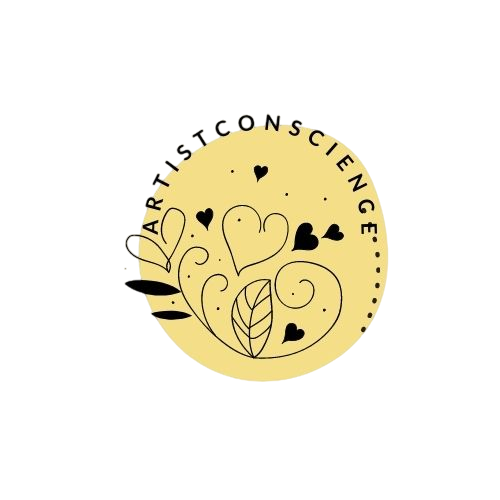Gift the Body and Mind with Meditation

I went to a beginner’s meditation class, which was a great opportunity because I’ve always been interested in how meditation can improve mental and physical well-being.
Since then, I’ve listened to guided and unguided meditation to help me relax and sleep better.
Even though I always appeared calm on the outside, my mind was constantly racing. This worsened my anxiety, and I couldn’t relax or enjoy activities.
Meditation has many amazing benefits. It can give you a new perspective by teaching you to observe your thoughts without judgment. It helps calm the mind and promotes relaxation and positivity.
Meditation has many other advantages, such as freeing the mind from negative thoughts and self-doubt, boosting the immune system, reducing stress and anxiety, and decreasing headaches and tiredness.
The best part is that meditation is easier than you might think.
During the course, I heard many people say they wished they had started something like this earlier. We all lead busy and stressful lives, so taking time for activities that improve our overall well-being is extremely important.
However, despite the growing popularity of meditation, there are still some misconceptions.
Let’s first explore some of the myths and misconceptions:
Myth #1: Meditation is only for spiritual or religious people
Many people believe that meditation is only for spiritual or religious purposes. However, meditation is a secular practice that anyone can use regardless of their beliefs.
While meditation does have its roots in Buddhism, it has since evolved. Anyone can practise it for various reasons, including stress reduction, improved mental clarity, and increased self-awareness.
Myth #2: You need to be able to clear your mind completely
One of the most common myths about meditation is that you need to be able to clear your mind of all thoughts completely. However, this is not true.
Meditation is not about stopping your thoughts altogether but learning to observe them without judgment.
It’s normal for your mind to wander during meditation, and the goal is to bring your focus back to your breath or a mantra.
Myth #3: Meditation is only for people who are good at relaxing
Another myth about meditation is that it’s only for people who are naturally good at relaxing. However, this is not true. Meditation is a skill that can be learned and developed with practice. While some people may find it easier to meditate than others, anyone can benefit from regular meditation practice.
Myth #4: You need to meditate for a long time to see the results
Many people believe you need to meditate for hours to see any benefits. However, this is not true.
Even just a few minutes of meditation daily can significantly impact your mental and physical well-being. The key is to make meditation a regular practice and to stick with it.
Myth #5: There is a right way to meditate
There is no right way to meditate. You’ll need to find what works for you
Below is a poem by Rumi that I would like you to read.
Here are tips for those new to meditation:
1. Breathing Techniques
There are different forms of meditation.
Breathing techniques can help you when you feel stressed by bringing your thoughts to your breathing. Calm breathing can allow your thoughts to come and go and release any anxiousness.
When my daughter feels extremely nervous during a gymnastics competition, I often advise her to take slow breaths in and out while focusing on her breathing. This simple technique has significantly reduced her anxiety and helped her concentrate, ultimately leading to improved performance.
Breathing techniques are a powerful strategy, especially for individuals dealing with anxiety. I practise breathing techniques every morning.
Here’s a technique called calm breathing that can be helpful:
- Inhale slowly through your nose, allowing the breath to fill your lower stomach for 4 seconds.
- Hold your breath in your stomach for 1 or 2 seconds.
- Begin to exhale slowly through your mouth for 4 seconds.
- Wait for a few seconds before taking another breath.
- Repeat these steps until you feel the anxiety released from your body.
This technique can be repeated as needed to promote a sense of calm and alleviate anxiety.
2. Practice Consistently
Consistently practising meditation can bring tremendous benefits, and incorporating breathing techniques can enhance your ability to concentrate.
To begin with, you don’t have to meditate for more than 5 minutes each day. Over time, you can gradually increase the duration of your meditation sessions.
Remember to be kind to yourself! If you miss a day or two of meditation, don’t worry. You can always get back on track. Give yourself rewards for practising meditation and avoid putting unnecessary pressure on yourself.
Remember that meditation is not about eliminating your thoughts; it’s about developing a healthy awareness and perspective. If you find that your thoughts are interrupting your meditation, that’s completely normal. Start with small steps; eventually, you can extend your meditation time.
The Headspace app is an excellent choice for those new to meditation who prefer a gentle introduction. It provides guided meditations and is designed for beginners who want to start with shorter sessions.
3. Find a comfortable place
When you meditate, it’s important to find a comfortable position to relax without any distractions. However, I personally enjoy meditating during my commute to work, even though there are some distractions. Ultimately, choose the best approach for you, enabling you to have a fulfilling meditation experience.
Do you like this blog post? Why not save it for later?

4. Explore what kind of meditation practice that works for you
There are different ways to meditate, and each type of meditation focuses on other things. Personally, I use both guided and unguided meditation when I want to sleep or when I start my day in the morning. I’ve recently introduced other meditation practices.
When it comes to meditation, there isn’t a right or wrong way to do it. Finding a method that brings you calm and inner peace is the most important thing.
If you’re new to meditation, here’s a simple technique you can try:
- Find a comfortable position, either lying down with your back straight or sitting with your feet on the floor, whichever feels best for you.
- Close your eyes.
- Breathe naturally, without forcing or controlling your breath.
- Direct your attention to your breath and observe how your body moves as you breathe. Pay attention to your rib cage, belly, and chest.
- If thoughts arise and your mind wanders, gently bring your focus back to your breath.
5. Enhance the benefits of meditation
Meditation, mindfulness, connecting with nature, and practising yoga enhance your overall experience. One way to explore this is by meditating in your garden, where you can pay attention to the sights, smells, and sounds of nature surrounding you.
6. Guided Meditation
Guided meditation is where you listen to a recorded voice or follow along with a live instructor who provides instructions and guidance throughout the meditation session. This meditation is beneficial because it helps us relax, focus our minds, and cultivate inner peace. The meditation guidance helps keep our attention centred and prevents our minds from wandering too much. It can benefit beginners who find it challenging to meditate on their own.
Guided meditations often include soothing music, visualisation techniques, and prompts to focus on specific sensations or thoughts. By following the instructions and immersing ourselves in guided meditation, we can experience reduced stress, improved concentration, increased self-awareness, and a deeper sense of calm and well-being.
Below is a mini guided Meditation video from Headspace.
7. Unguided Meditation
Unguided meditation refers to the practice of meditating without external instructions or guidance. It allows us to explore and cultivate our own internal experiences during meditation. This form of meditation offers various benefits, promoting self-discovery, self-reliance, and a deeper connection with ourselves. Without external influences, we can choose our focus, whether it’s our breath, bodily sensations, or thoughts.
Unguided meditation encourages us to trust our intuition and develop greater self-awareness. It provides an opportunity for independent exploration and a deeper understanding of our minds and emotions. Unguided meditation allows us to create a personal meditation practice that aligns with our unique needs and preferences. By engaging in unguided meditation, we can experience increased clarity, enhanced mindfulness, improved emotional well-being, and a greater sense of inner peace and harmony.
On my At Peace YouTube channel, you’ll find a collection of unguided meditation videos designed to help you find tranquillity and inner calm. Through these videos, you can explore the practice of meditation at your own pace, allowing yourself to dive deep into your thoughts and experiences.
If you want to enhance your mindfulness journey and discover inner peace, I invite you to subscribe to At Peace. Here is a video for you to check out below 👇🏾
To conclude
By embracing meditation as a regular practice, we unlock the potential for personal transformation, profound inner peace, and holistic well-being. It is an accessible and empowering tool we can integrate into our daily lives, regardless of age, background, or beliefs.
So, let us embrace meditation’s power and experience its incredible benefits. The rewards are plentiful, whether a few minutes of quiet reflection or a dedicated meditation practice. Let meditation be our guiding light, illuminating our path towards a calmer mind, a healthier body, and a more fulfilled and joyful life.
We sincerely thank you for dedicating your time to reading our blog! Your engagement means a lot to us, and we genuinely hope that the information we’ve shared has proven valuable to you.
We eagerly invite you to share your thoughts and experiences with us. Please feel free to comment or contact us with any questions or suggestions.
Once again, we extend our heartfelt gratitude for joining our blog community. Stay inspired, stay motivated, and continue nurturing your well-being 💛
Warm regards!
About The Author
Sherie Mogane
© 2020 Artistconscience. All rights reserved


